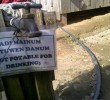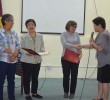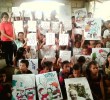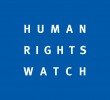MANILA — Team Unity candidates are committed to help build specialty hospitals in the regions, stuff them with modern medical equipment and continue honing the skills of their staff, with the ultimate goal of luring into the country the elderly and the infirm in search of the cure for their illnesses in countries other than their own.
“It’s called medical tourism,” Team Unity senatorial candidate and Surigao Rep. Prospero Pichay said in a recent radio interview. The term itself suggests a combination of medical treatment and post-treatment rest-and-recreation tours in tourist spots like Boracay and Panglao islands, but its main idea sprung from a tourism phenomenon in which foreigners flock to the country to seek cure offered by faith-based healers.
“That is the reason I am helping all government-owned medical centers, and even district hospitals, build up their own capabilities. Certainly, more tourists will come if they (these hospitals) have the necessary expertise and more advanced facilities,” Pichay said.
As proof of his performance in the field, Pichay recalled a hospital in his own legislative district that his constituents used to label as “Mona Lisa” hospital because it had no medicines and treatment to offer and its previous patients “just lie there and they just die there.” By injecting into it P15 million of his congressional funds, he said, the hospital had a facelift and its airconditioning system installed “that it now looks like a hotel.” He added, “Now more American doctors are availing themselves of the hospital’s facilities to do their own medical mission in the area.”
What made Pichay to commit his unequivocal support to medical tourism was his belief that Filipino doctors had never been short in talent and capabilities. They are reliable, he said, “they just need the necessary break.”
Pichay then recalled one event that put the capabilities of Filipino doctors in international limelight was when doctors at the St. Luke’s Medical Center operated on First Gentleman Jose Miguel Arroyo for what they termed as dissecting aneurysm. “They (the St. Luke’s doctors) held US-based doctors in awe. It was a high-risk operation, but a job well-done,” he added.
Pichay said that with affordable rates local hospitals charged their patients, he was certain more foreigners would opt to have themselves treated in the Philippines than elsewhere. “It is very much cheaper here, comparatively speaking,” he added as he reckoned that a heart bypass operation here cost only about half a million pesos, a far cry from what the $500,000 patients paid for the same operation done in the United States, “which is not really affordable.”
In the same breath, Pichay lamented that many of medical buildings in many regional medical centers in the country housed a few medical equipment. “That (lack of medical equipment) is one reason the poor cannot get full medical attention even if they frequently consult with the hospital doctors,” he said.
As a result of the apparent equipment lack in public hospitals, Pichay said, patients sought medical attention in private hospitals. “The best thing that Congress can do in this regard is to appropriate more funds for district hospitals to enable them to buy the necessary diagnostic and medical equipment like CT scan, ECG and EKG equipment to enable the doctors to determine what ails their patients,” he further said.
Pichay also batted for measures that would lead to the construction of more specialty hospitals � specialty facilities such as heart hospital, kidney hospital, lung hospital, etc. � in the regions and the installation of more medical and surgical equipment as well as the procurement of diagnostic tools.
“They also need funds to train their staff continuously so they can operate on people afflicted with cancer, kidney trouble, and heart ailment,” he said.
“That’s one effective way of providing health services to the poor,” Pichay said. “I’ve done this in my district. I am running for the Senate so I can do more.”
Pichay and the rest of the Team Unity senatorial slate are now campaigning on the basis of President Arroyo’s Social Payback Program which, in a nutshell, aims to deliver a package of infrastructure projects and socio-economic services as benefits derived from 24 Quarters of nonstop economic growth. This year alone, the government has alloted P256 billion for infrastructure projects and another P319 billion for socio-economic services.
People expect more of the economic benefits in terms of infrastructure projects and socio-economic services starting this year, particularly if the new Senate forges a close working relationship with Malaca�ang and craft new laws necessary to push the administration’s economic and “social payback” agenda.###
****** INBOX is an archive of press releases, statements, announcements, letters to the editors, and manifestos sent to Davao Today for publication. Please email your materials to davaotoday@gmail.com. Davao Today reserves the right to edit or refuse material for publication. *****
2007 Elections









